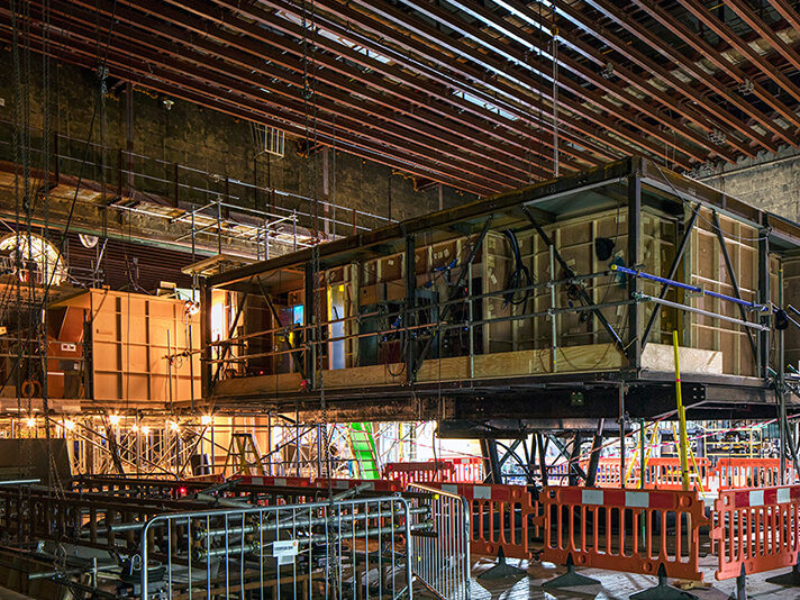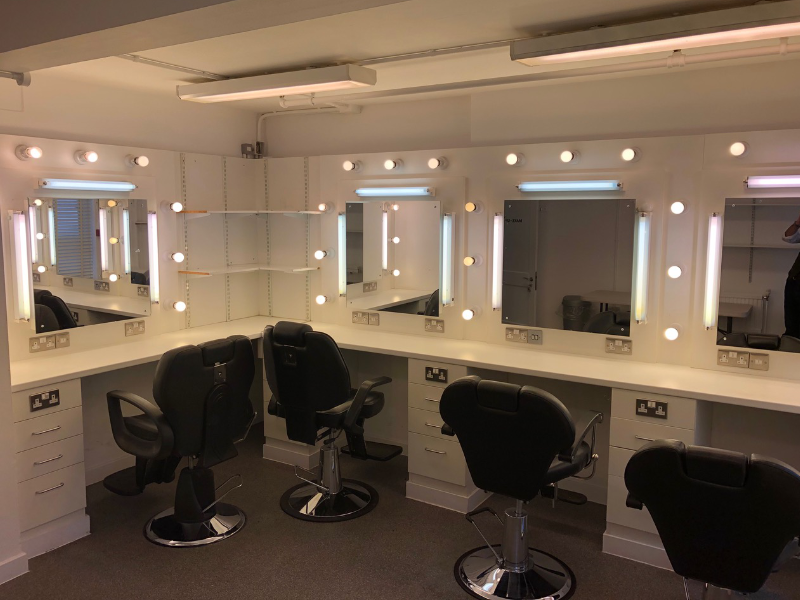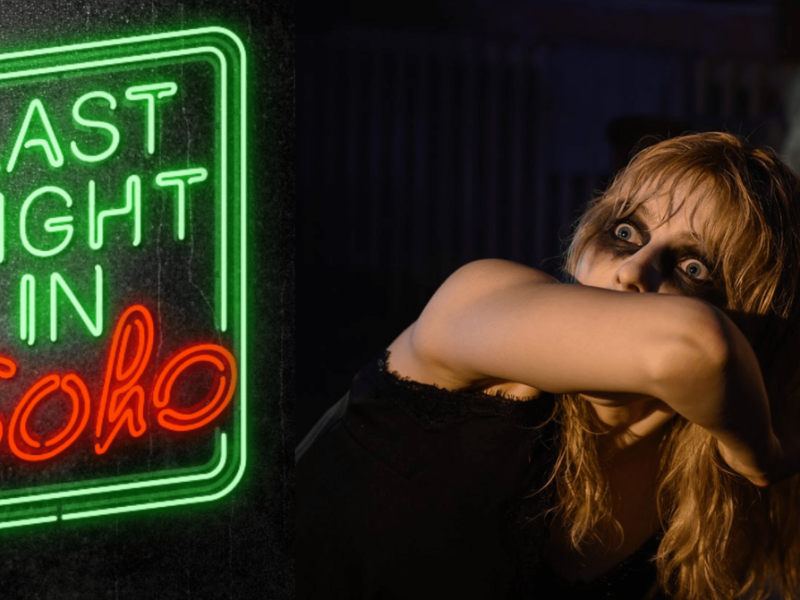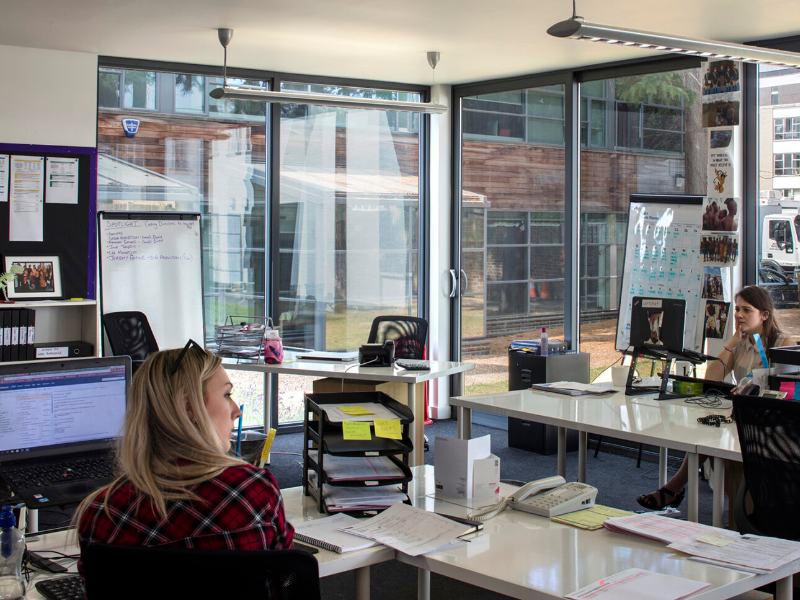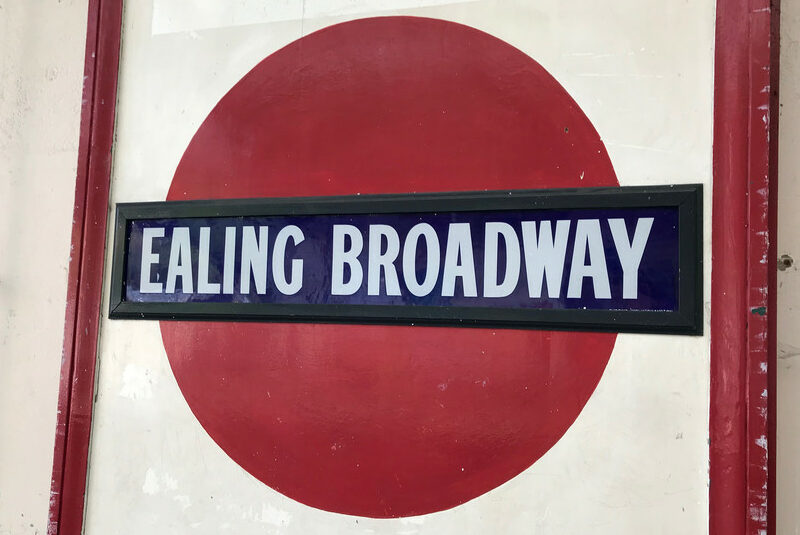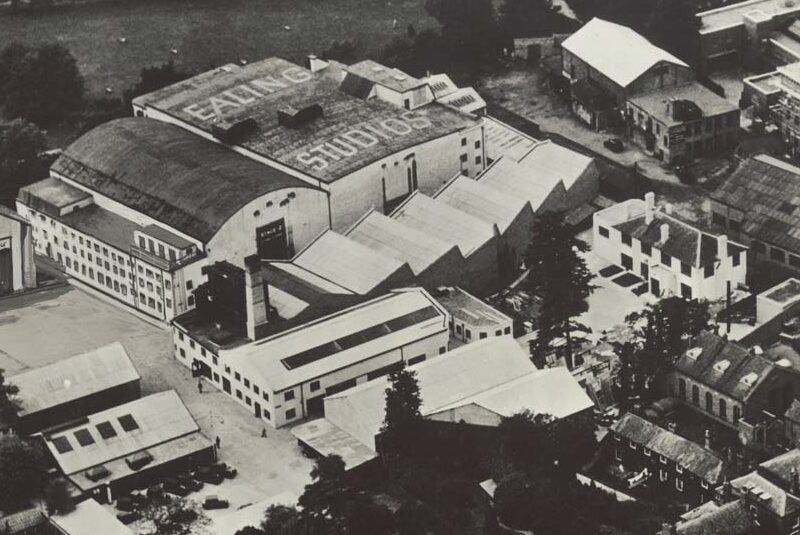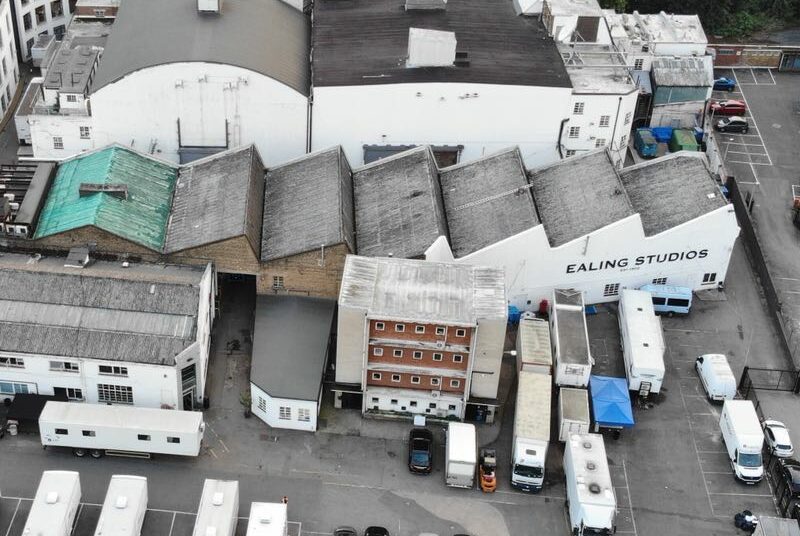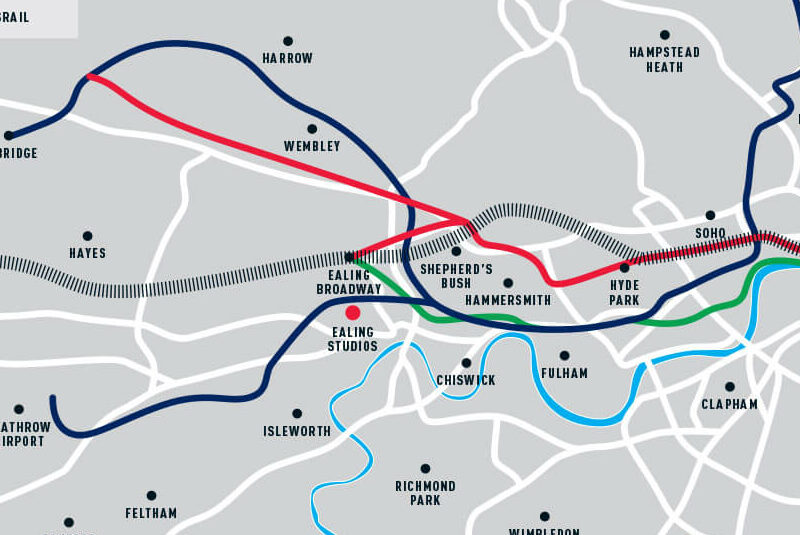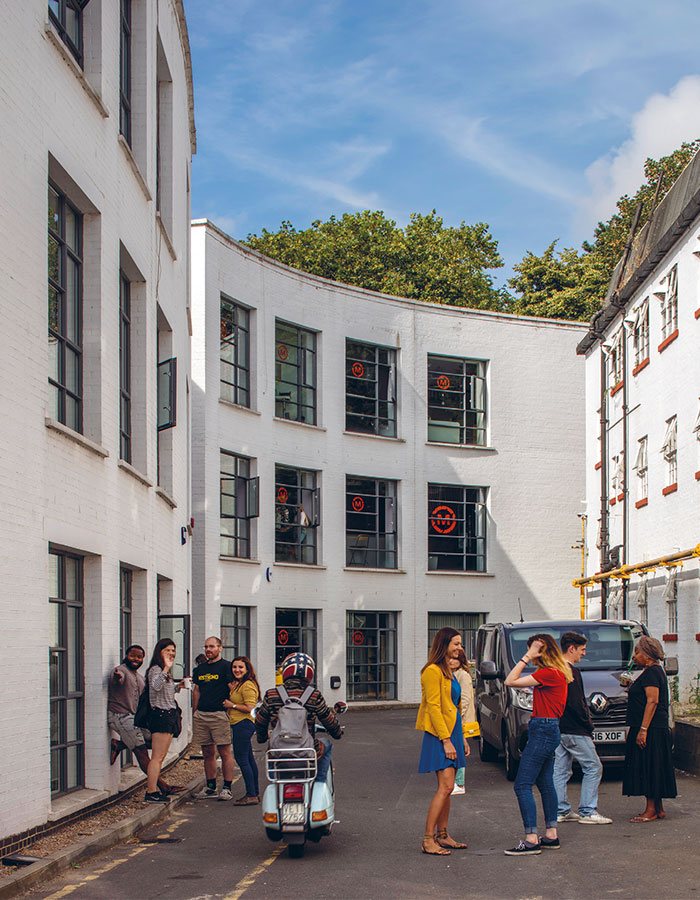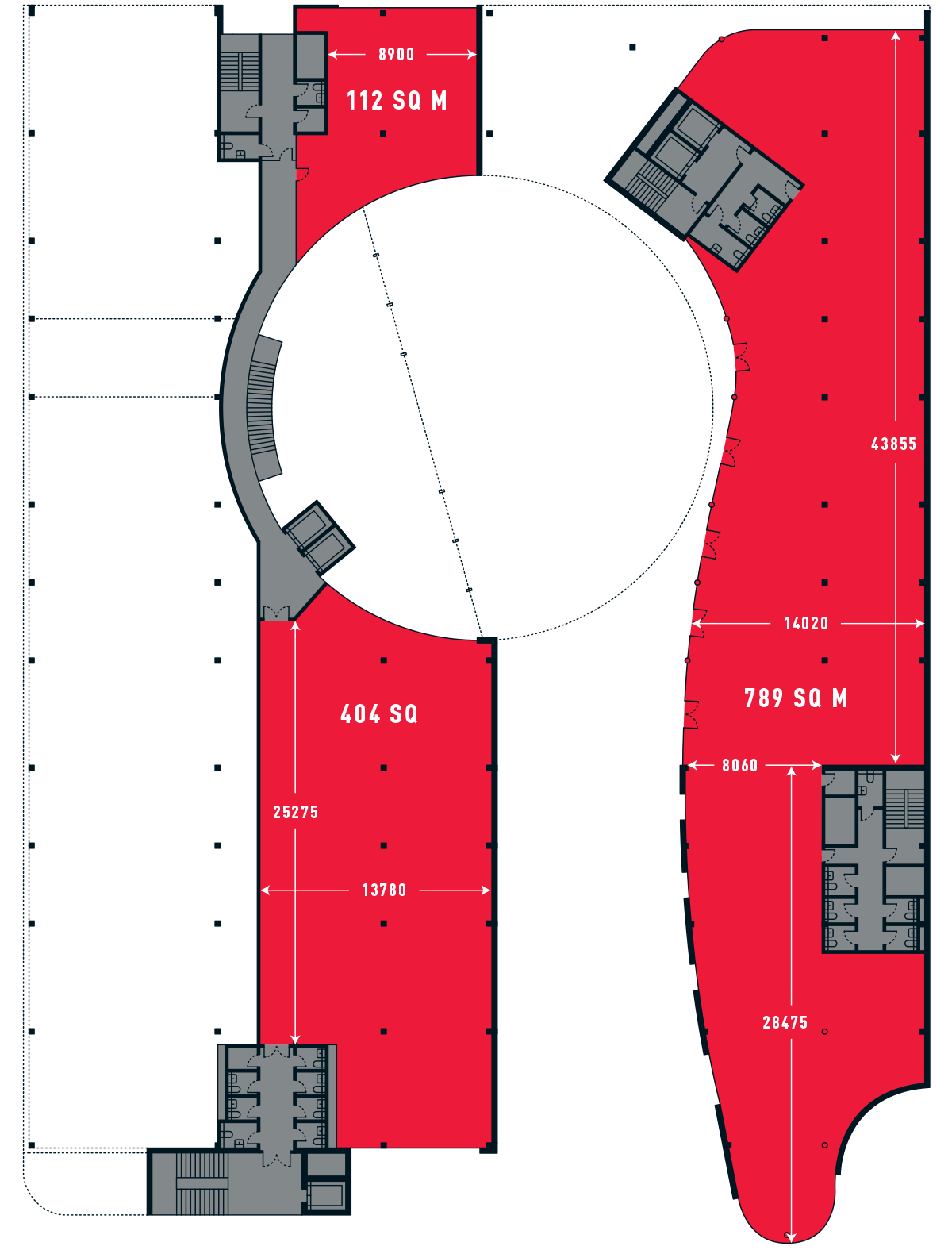The Bells Go Down is a 1943 black-and-white wartime film made by Ealing Studios. The reference in the title is to the alarm bells in the fire station that “go down” when a call to respond is made. The film is an ensemble piece that covers the period between 27 August 1939, and 9 September 1940, when World War II began and London was subjected to aerial bombing, and is a tribute to the solidarity of not just those engaged in service, but among the British people as a whole.
It was produced by Michael Balcon and directed by Basil Dearden and was intended to give praise to the British Auxiliary Fire Service (AFS). Although a plot employing fictitious landmarks and localities, many of the incidental shots were taken at actual fires caused by the air raids on London in the previous two years. A sub-plot depicted the rivalry between the part-time AFS and the full-time London Fire Brigade (the two brigades merged into the National Fire Service in 1941). The reasons for joining the service, the training and finally the work and tragedy during September 1940 Blitz on London were shown for several characters. The background narration was spoken by Leo Genn.
The film was released at nearly the same time as the similar Fires Were Started, a fictional “documentary” that used actual firemen instead of professional actors, and as a result was sometimes reviewed unfavorably by comparison.
The score was originally offered to William Walton, but for various reasons (possibly including that he had lost his own home in the Blitz) he offered it to his musical assistant Roy Douglas.
Undercover is a major 1943 war film produced by Ealing Studios in London, originally titled Chetnik. It was filmed in Wales and released on 27 July 1943. The subject was the Yugoslav guerrilla movement in German-occupied Yugoslavia loosely based on the Draza Mihailovich resistance movement. The movie was produced by Sir Michael Balcon and directed by Sergei Nolbandov. It starred John Clements as Milosh Petrovitch, Mary Morris as Anna Petrovitch, his wife, Stephen Murray as Stephan Petrovitch, his brother, Michael Wilding as Constantine, and Stanley Baker as Petar. The movie was re-released in the United States in 1944 by Columbia Pictures under the title Underground Guerrillas. The Ealing movie was similar to the 20th Century Fox wartime film Chetniks! The Fighting Guerrillas (1943) made in the U.S. The plot revolves around a resistance movement that emerges in Yugoslavia after the German invasion in 1941. The guerrillas are able to blow up trains, engage in sabotage, and to battle German troops. In the final scene, the guerrillas are shown going into the Serbian mountains to continue their resistance struggle until the German forces are driven out of the country. The movie was released on DVD on 25 January 2010 by Optimum Home Entertainment in the UK.
My Learned Friend is a 1943 British, black-and-white, comedy, farce, directed by Basil Dearden with his regular collaborator, Will Hay, as the film’s star in the role of William Fitch. The principal supporting roles were taken by Claude Hulbert and Mervyn Johns . Character roles went to Laurence Hanray as Sir Norman, Charles Victor as “Safety” Wilson, Ernest Thesiger as Ferris and Ronald Shiner as the Man in Wilson’s café. It was produced by Michael Balcon, Robert Hamer and Ealing Studios. The film’s title refers to a tradition in British law: when addressing either the court or the judge, a barrister refers to the opposing counsel using the respectful term, “my learned friend”. It was the last film featuring Will Hay as he had an operation, however, it wasn’t the last role in his career as he would star as “Doctor Muffin” in The Will Hay Programme that aired on the radio, the radio show began in 1944. The humour of the film was different from the humour of Hay’s films he previously made with Moore Marriott and Graham Moffatt and the film had more of a dark humour than any of Hay’s other films. Hay had planned to make more films with Claude Hulbert that had a dark humour, but it was Hay’s last film due to illness.
San Demetrio London is a 1943 British World War II docudrama based on the true story of the 1940 salvage of the tanker MV San Demetrio by some of her own crew, who reboarded her after she had been set on fire by the German heavy cruiser Admiral Scheer and then abandoned, during the Battle of the Atlantic. The film was produced by Michael Balcon for Ealing Studios and directed by Charles Frend.
The Halfway House is a 1944 British drama film directed by Basil Dearden and starring Mervyn Johns, his daughter Glynis Johns, Tom Walls and Françoise Rosay. The film tells the story of ten people who are drawn to stay in an old inn near the Welsh countryside. The film was shot at Barlynch Abbey on the Devon/Somerset border. BFI Screenonline writes, “The high quality personnel involved and the tight, professional scripting mark the film out as one of the earliest templates of what would become the traditional Ealing style.”
For Those in Peril is a 1944 British war film produced by Ealing Studios that marked the directorial debut of Charles Crichton. The film was developed from a short story by Richard Hillary, an RAF pilot killed in action in January 1943. The basic and relatively slight storyline of For Those in Peril was an end to produce a film with a documentary feel and an element of wartime propaganda. The film stars Ralph Michael and David Farrar.
They Came to a City is a 1945 British film directed by Basil Dearden adapted from a J. B. Priestley play. It stars John Clements, Googie Withers, Raymond Huntley, Renee Gadd, A. E. Matthews and others, and is notable for including a cameo guest appearance by Priestley as himself. The plot concerns the experiences of various people who have come to live in their “ideal” city, and explores their hopes and reasons for doing so. Many of the cast had also performed their roles in the original stage play. The film’s art direction was by Michael Relph.




